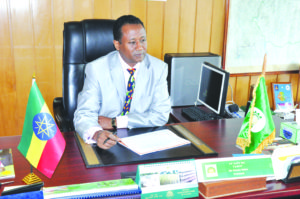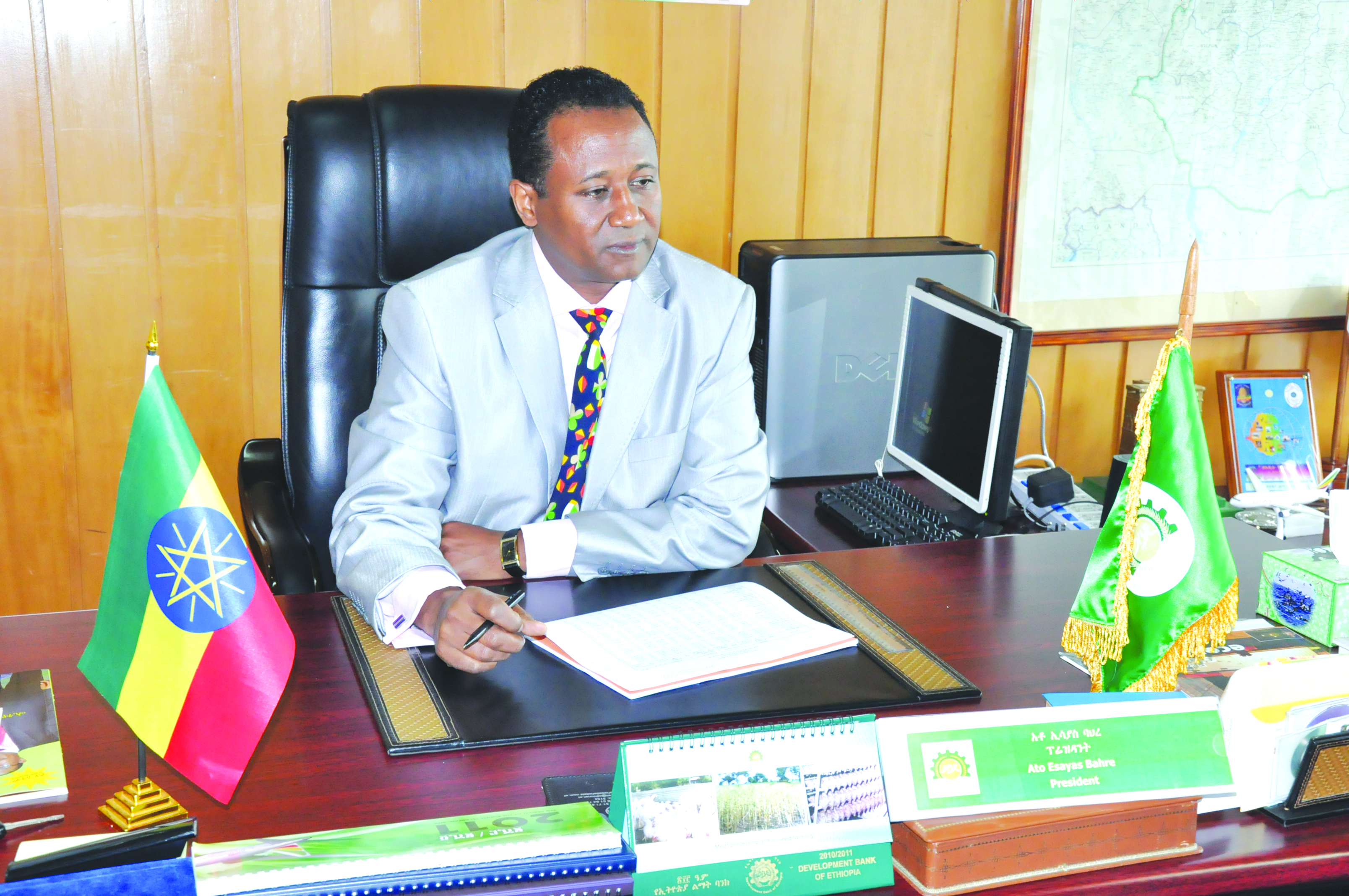The 107 year-old Development Bank of Ethiopia (DBE) is synonymous with Ethiopia’s development. Mr Essayas Bahre, President of DBE, discusses the specialised financial institution’s role in the economy of Africa’s second most populous country

How would you describe Development Bank of Ethiopia’s contributions to the growth of the national economy in recent times?
Development Bank of Ethiopia, as a Policy Bank of the government, is playing a pivotal role in the country’s economic development through the provision of medium and long-term financial support to different sectors of the economy in accordance with government’s plans and policies. DBE has been financing government’s priority projects that guarantee the greatest developmental benefits. These projects are expected to generate foreign exchange earnings, facilitate speedy technological transfer, improve the country’s competitiveness, support growth of the agriculture sector and promote import substitution.
The Bank also plays a great role in enhancing the expansion and quality of infrastructure development of the country, which is one of the pillars of the Growth and Transformation Plan (GTP). To this end, DBE shoulders responsibility of the construction of the Grand Ethiopian Renaissance Dam project through sales of the dam bond, which will transform the country by supplying cheap energy to industries and generating foreign exchange earnings from energy export.
Recently, DBE carried out a structural reengineering to extend loans to Small and Medium Enterprises. What informed this decision?
Small and Medium Enterprises (SMEs) are the springboard for industrialization. However, financial access is becoming a critical challenge to the SMEs. To address the acute financial problem of this sector, government has designed various mechanisms including Capital Goods Leasing. Accordingly, DBE is playing a leading role in SMEs development in the provision of Lease Financing. It is one of our new products for the SMEs. Here, Development Bank of Ethiopia provides lease financing on capital goods; or enters into hire purchase agreement with SMEs, without requirement of collateral for a specified period of time and collects in return a certain amount of periodical payments over the specified period.
DBE launched this new product to promote domestic raw materials utilization, import substitution and export, create job opportunities for many unemployed individuals, generate foreign exchange earnings, and ensure equitable wealth distribution.
Ethiopia is transforming from an agricultural to industry-led economy. What role is DBE going to play in this?
To ensure sustainable economic development, it is important to transform from an agricultural to industrial-led economy. As Ethiopia pushes towards an industrial-led economy, Development Bank of Ethiopia is playing a great role by prioritizing loans disbursement to agro-processing, manufacturing, and Small and Medium Enterprises (SMEs), which are the cornerstone to industrialization. DBE, as a Policy Bank, is an engine of the country‘s development. We avail medium and long-term credit to the agriculture, industry, mining and energy sectors as well as SMEs. This places DBE on the right track to foster industrialization.
DBE plans to open the 175 new branches to cater to SMEs. How feasible are these?
It is realizable. We are on track to open 175 branches to cater to the SMEs which are critical to job creation and sustainable economic development. Indeed, SMEs abound all over the country, which do not have access to financing and could close shop if not backed financially. With the new branches, DBE will be closer to the SMEs. And so will our products targeted at these engines of development.
In a country with more than 95 million population and rising per capita income, the demand for SMEs products will increase. So, the promotion of SMEs is necessary, which is also part of our industrialisation policy that aims at exploitation of available domestic resources and value addition. Through DBE’s feasibility study, over three million SMEs were found to have potential to transform the country. Therefore, DBE plans to allocate over 40 billion birr for lease financing services in the coming five years. These planned branches will ease loans disbursement to the SMEs and access to our financing.
What are your unique selling points, and what are your long-term goals?
Development Bank of Ethiopia is unique because it is deals with project financing. The Bank’s mandate is provision of medium and long-term credits to investment projects in the priority areas of government such as commercial agriculture, agro-processing, manufacturing and extractive industries. Indeed, project finance by its very nature relies on financial projection; cash flow estimation in particular as a tool for project screening. Thus, project appraisal and implementation is the backbone of the Bank’s operational strategy.


